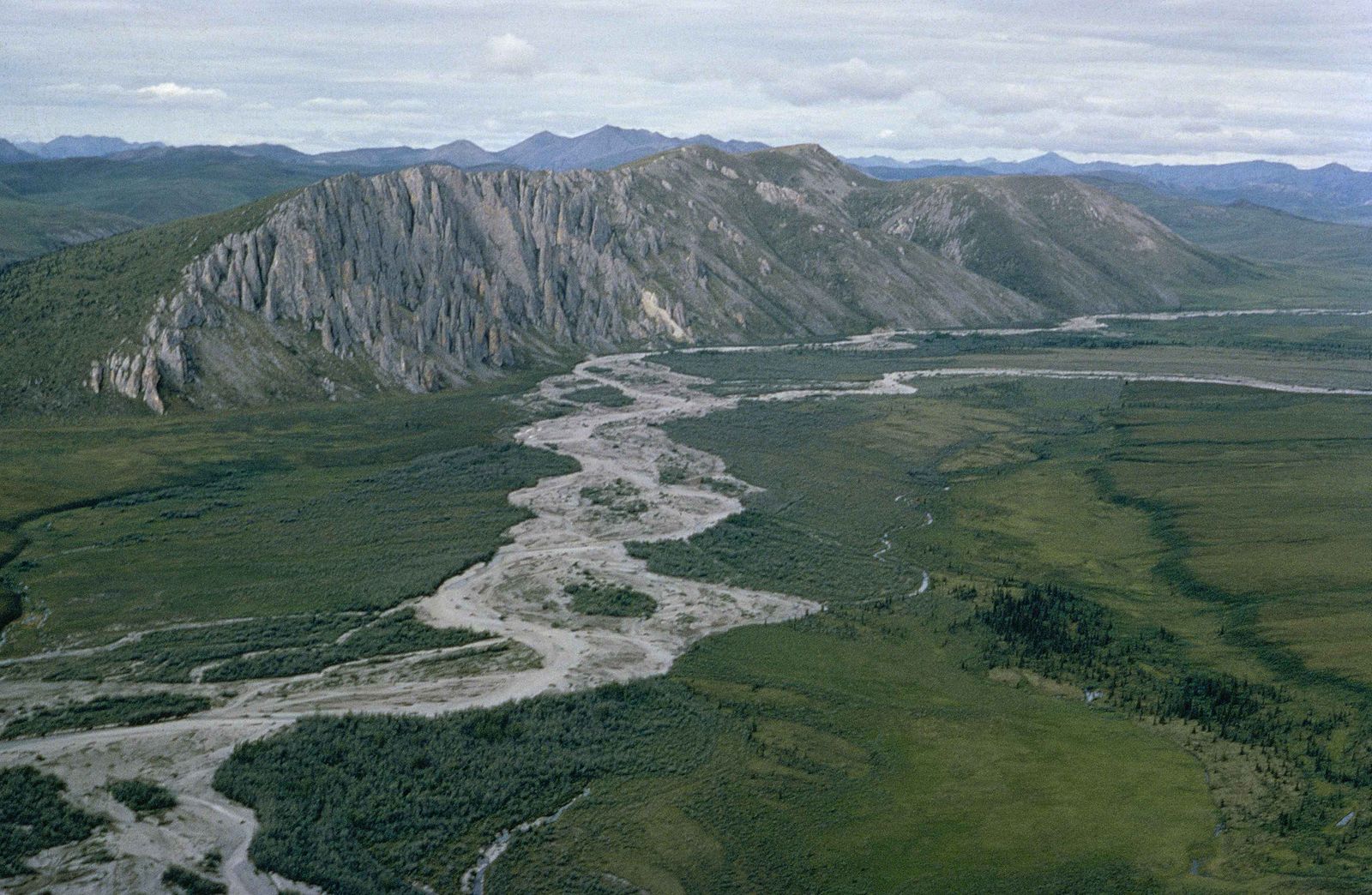By Romany Webb

Last Thursday, December 3, the Department of the Interior’s Bureau of Land Management (BLM) announced that it will conduct a sale of oil and gas leases in the Arctic National Wildlife Refuge (ANWR) on January 6. President-Elect Biden, who has long opposed oil and gas development in ANWR, will take office two just weeks later. This has prompted many to ask: could the Biden Administration cancel any leases sold on January 6? The answer is probably not. But there is reason to believe they might be invalidated by the courts. And the Biden Administration might be able to cancel leases outside ANWR and/or take other steps to slow down or restrict oil and gas development on public lands.
Debates over oil and gas drilling in ANWR have raged for decades. In 1980, Congress enacted the Alaska National Interest Lands Conservation Act, which prohibited any “[p]roduction of oil and gas from” ANRW. Notably however, the Act directed the Department of the Interior to study the potential impacts of allowing production in part of ANWR, known as the Coastal Plain. The Department reported back to Congress in 1987. While finding that the Coastal Plain was home to numerous species of wildlife that could be negatively impacted by oil and gas operations, the Department recommended that the entire area be made available for leasing. In support of that recommendation, the Department noted that domestic oil production was declining, and that the Coastal Plain contains significant oil reserves.
Despite the Department’s recommendation, over the next 30 years, Congress voted against allowing oil and gas drilling in ANWR almost 50 times. Things changed in 2017, however. The Tax Cuts and Jobs Act of 2017 lifted the prohibition on oil and gas production in the Coastal Plain of ANWR and directed the Secretary of the Interior to “establish and administer a competitive oil and gas program for the leasing, development, production and transportation of oil and gas in and from the” area. At least two lease sales, each covering at least 400,000 acres, must be held in the Coastal Plain—the first by December 2021 and the second by December 2024.
While the first lease sale is not legally required to occur for another year, the Trump Administration is moving ahead now. To meet the accelerated timeline, BLM has had to expedite various steps in the leasing process. Typically, before holding lease sales in a particular area, BLM first develops an overarching “leasing program” for the area. When developing the program, BLM must conduct an environmental review under the National Environmental Policy Act (NEPA), and engage in extensive public consultation. Based on its review and public feedback, it identifies specific tracts of land within the area that are suitable for oil and gas development. It then amends the land use plans for the relevant area (or, if the surface of the land is managed by another agency, works with that agency to have the plans amended) to allow oil and gas leasing on those tracts. BLM then invites interested parties to nominate specific tracts for leasing. Only after all of that has occurred, does BLM actually schedule lease sales.
In its haste to sell off ANWR, BLM has skipped some of these steps, and rushed through others. For example, while BLM did prepare an environmental impact statement (EIS) under NEPA, the statement has been widely criticized as inadequate, including because it did not fully analyze climate impacts. BLM allowed the public just 45 days to review and comment on the 390-page draft EIS. After finalizing the EIS, BLM decided to move ahead with leasing, before the land management plan for the Coastal Plain had been updated. On November 17, it issued a “call for nominations” of land to be included in the first lease sale, and asked interested parties to submit comments within 30 days. Subsequently, however, it decided not to wait that long and announced it would host a lease sale on January 6.
These sorts of procedural deficiencies could, ordinarily, justify cancellation of oil and gas leases. BLM’s regulations provide that leases “shall be subject to cancellation if improperly issued.” This has been interpreted as authorizing the cancellation of leases “issued in violation of . . . procedural requirements.” Thus, for example, the Secretary of the Interior has previously cancelled leases that were issued before the requirements of NEPA and other statutes were met. Those cancellations have, where considered, been upheld by the courts (see here for an example).
There is a catch, however. The above cancellation provision does not apply to leases issued in the National Petroleum Reserve-Alaska (NPR-A). BLM regulations provide that NPR-A leases can only be cancelled in two situations. First, if a lease is not producing oil and gas, it may be cancelled if the lessee fails to comply with any legal requirement imposed on him/her/it. Second, if a lease is producing or “known to contain valuable deposits of oil or gas,” it can only be cancelled “by court order.”
While the Coastal Plain is not part of the NPR-A, in the Tax Cuts and Jobs Act of 2017, Congress directed BLM to “manage the oil and gas [leasing] program in a manner similar to the administration of lease sales” in the NPR-A. It is, therefore, likely that the restrictions on cancellation of leases in the NPR-A would also apply to leases in the Coastal Plain.
There is, however, some good news. Several environmental and other groups have challenged the Coastal Plain leasing program on various grounds, including that BLM violated NEPA by failing to fully consider the climate and other environmental impacts of leasing. If those challenges are successful, the courts could order cancellation of any leases issued under the program. That has already happened in other places. Earlier this year, for example, a federal court in Idaho vacated oil and gas leases covering more than 1 million acres of land in Nevada, Utah, and Wyoming after finding that BLM had failed to comply with the requirements of NEPA and the Federal Land Policy and Management Act.
Importantly, in some cases, the Biden Administration might be able to cancel oil and gas leases outside the NPR-A and ANWR without court action. This occurred several times during the Obama Administration. For example, in late 2016, then Secretary of the Interior Sally Jewell cancelled 25 leases in the White River National Forest in Colorado after determining that they suffered from procedural defects, even though the courts had never ruled on the matter.
The leases in question were issued between 1995 and 2012. Prior to their issuance, in 1993, the Forest Service had conducted an environmental review of oil and gas development in the White River National Forest under NEPA. BLM acted as a cooperative agency in that review and relied on the Forest Service’s EIS in developing its leasing program for the forest. Importantly, however, BLM never formally adopted the Forest Service’s EIS. While that failure was not challenged in court at the time, some years later, it was raised in an administrative appeal brought by environmental groups and others, challenging BLM’s decision to offer three parcels of land in the forest for sale. The Department of the Interior’s administrative adjudicatory body – the Interior Board of Land Appeals (IBLA)– determined that BLM had not complied with NEPA before leasing the three parcels because it did not formally adopt the Forest Service’s EIS or prepare its own. While the IBLA did not rule on other leases previously issued in the White River National Forest, BLM decided that they suffered from the same procedural defect, and were thus voidable. BLM then conducted a new environmental review to assess whether the leases should be cancelled, reaffirmed, or modified. It determined that, in the period since the Forest Service’s original analysis, new information had become available that showed leasing in the White River National Forest would have serious negative impacts and thus cancelled 25 previously issued leases. (At least one cancellation was challenged in court, but the case was voluntarily dismissed after the Trump Administration offered new leases for sale in the White River National Forest.)
There have been many allegations of irregularities in oil and gas leasing during the Trump Administration. Numerous leasing decisions have been challenged on the basis that Trump’s BLM failed to conduct adequate environmental reviews. BLM seemingly admitted that there is a problem when, last year, it voluntarily suspended 130 leases after environmental groups alleged it had failed to adequately consider climate impacts under NEPA. Where there is evidence of NEPA violations or other procedural irregularities, the Biden Administration could conclude that leases are defective and should be cancelled.
There may also be other options available to the Biden Administration to slow-down or restrict oil and gas development on already leased land. Before drilling for oil and gas on leased land, lessees must obtain a permit from BLM. Before issuing a drilling permit, BLM must conduct another environmental review under NEPA, as well as any required reviews under the National Historic Preservation Act, Endangered Species Act, and other statutes. Where those reviews show that drilling would give rise to “severe resource concerns,” such as serious adverse impacts on wildlife that cannot be mitigated, BLM can deny the application, effectively preventing development of the lease site. Denials have, in the past, been rare and would almost certainly prompt court challenges from the lessee.
Equally controversial, the Biden Administration could, where legally permissible, refuse to approve other activities or facilities associated with oil and gas drilling, such as roads and pipelines. Under the Tax Cuts and Jobs Act of 2017, the Secretary of the Interior is legally required to issue rights-of-way or easements across the Coastal Plain, as necessary for oil and gas exploration, development, production, and transportation. In some cases, however, oil and gas pipelines and other infrastructure may also require permits from other federal agencies (e.g., the Army Corps of Engineers). The Act does not compel the issuance of those permits. Denying permits or imposing significant conditions on them could have the effect of preventing or restricting oil and gas development in the Coastal Plain. Whether the Biden Administration is willing to take that step remains to be seen.
Romany Webb is a Research Scholar at Columbia Law School, Adjunct Associate Professor of Climate at Columbia Climate School, and Deputy Director of the Sabin Center for Climate Change Law.



